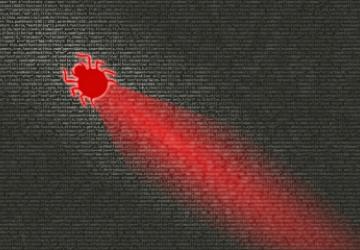Bug Hunting Inlined Code

The Linux kernel has various debugging tools. One is the kernel function tracer, which traces function calls, looking for bad memory allocations and other problems.
Changbin Du from Intel recently posted some code to increase the range of the function tracer by increasing the number of function calls that were actually compiled into the kernel. Not all function calls are ever actually compiled—some are "inlined", a C feature that allows the function code to be copied to the location that calls it, thus letting it run faster. The downside is that the compiled binary grows by the number of copies of that function it has to store.
But, not all inlined functions are specifically intended by the developers. The GNU C Compiler (GCC) also will use its own algorithms to decide to inline a wide array of functions. Whenever it does this in the Linux kernel, the function tracer has nothing to trace.
Changbin's code still would allow functions to be inlined, but only if they
explicitly used the inline keyword of the C language. All other inlining
done by GCC itself would be prevented. This would produce less efficient
code, so Changbin's code never would be used in production kernel builds.
But on the other hand, it would produce code that could be far more thoroughly
examined by the function tracer, so Changbin's code would be quite useful for
kernel developers.
As soon as he posted the patches, bug reports popped up all over the kernel in functions that GCC had been silently inlining. As a result, absolutely nobody had any objections to this particular patch.
There were, however, some odd false positives produced by the function tracer, claiming that it had found bugs that didn't actually exist. This gave a few kernel developers a slight pause, and they briefly debated how to eliminate those false positives, until they realized it didn't really matter. They reasoned that the false positives probably indicated a problem with GCC, so the GCC people would want to be able to see those false positives rather than have them hidden away behind workarounds.
That particular question—what is a kernel issue versus a GCC issue—is potentially explosive. It didn't lead anywhere this time, but in the past, it has led to bitter warfare between the kernel people and the GCC people. One such war was over GCC's failure to support Pentium processors and led to a group of developers forking GCC development into a competing project, called egcs. The fork was very successful, and it began to be used in mainstream Linux distributions instead of GCC. Ultimately, the conflict between the two branches was resolved only after the egcs code was merged into the GCC main branch, and future GCC development was handed over to the egcs team of developers in 1999.
Note: if you're mentioned above and want to post a response above the comment section, send a message with your response text to ljeditor@linuxjournal.com.









